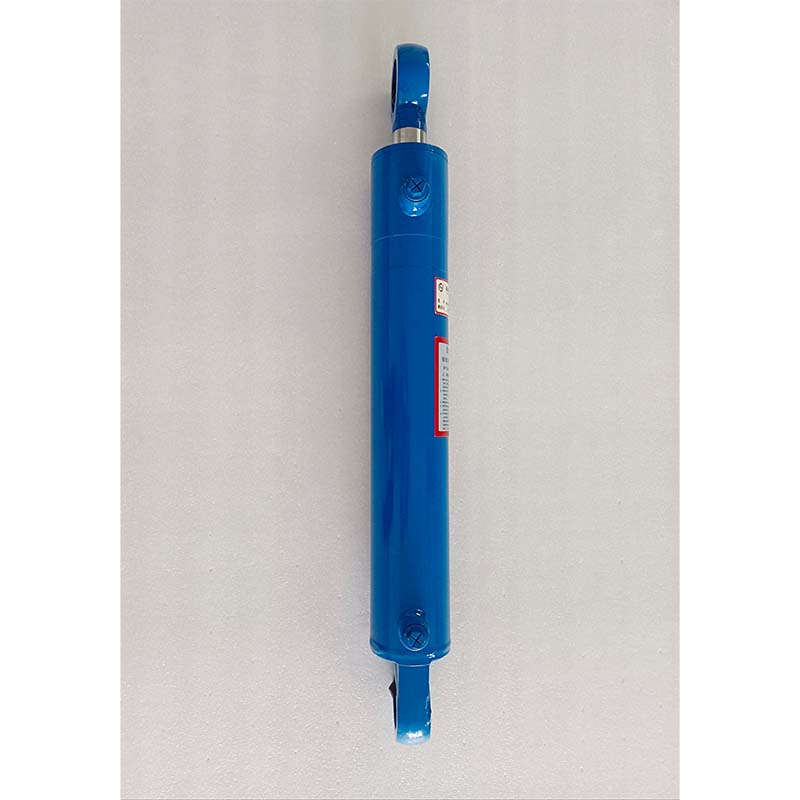Aug . 08, 2024 05:30 Back to list
Precision Honing Solutions for High-Quality Hydraulic Cylinders to Enhance Performance and Durability
The Importance of High-Quality Honing in Hydraulic Cylinders
Hydraulic cylinders are essential components in various industries, serving as the muscle behind machinery and equipment. From construction vehicles to manufacturing systems, these cylinders play a critical role in converting hydraulic energy into mechanical power. Within the realm of hydraulic cylinders, honing is a key process that significantly enhances the performance and durability of the components. This article explores the importance of high-quality honing in hydraulic cylinders.
Understanding the Honing Process
Honing is a machining process that involves using abrasive stones or tools to finish the interior surface of cylindrical components. The primary goal is to achieve a smooth, precise, and uniform finish. For hydraulic cylinders, honing is particularly critical as it directly affects the cylinder's operation, efficiency, and longevity. The honing process helps to eliminate machining marks, improve surface finish, and create desirable geometric features such as tapered surfaces or specific diameters.
Why High-Quality Honing Matters
1. Improved Sealing Performance A well-honed cylinder provides a better sealing surface for the piston and seals. High-quality honing minimizes the risk of leakage, which is vital for maintaining pressure and efficiency in hydraulic systems. Leaks can lead to performance losses, increased operational costs, and potential damage to machinery.
2. Enhanced Wear Resistance Hydraulic cylinders operate under high pressure and may experience severe conditions. High-quality honing enhances the surface hardness and wear resistance of the cylinder bore, ensuring it can withstand abrasive particles and extreme pressures. This durability extends the lifespan of both the cylinder and its components.
high quality honing hydraulic cylinder

3. Reduced Friction and Heat Generation The smooth surfaces achieved through high-quality honing reduce friction between the moving parts of the hydraulic cylinder. Lower friction translates to less heat generation during operation, which is crucial for maintaining the integrity of hydraulic fluids and preventing overheating. This efficiency is especially important in applications that require continuous operation.
4. Better System Efficiency Honed surfaces allow for tighter tolerances, which can significantly improve the overall efficiency of hydraulic systems. A more efficient hydraulic cylinder can lead to better energy utilization, smoother operation, and reduced power consumption. This not only benefits operational costs but also contributes to sustainability efforts within industries.
5. Consistent Performance High-quality honing leads to consistent dimensional accuracy and uniform surface finishes across batches of hydraulic cylinders. This consistency is essential for manufacturers and users alike, as it ensures that components will perform to specifications and reduces the likelihood of unexpected failures.
Quality Control in Honing
Achieving high-quality honing requires meticulous attention to detail and rigorous quality control measures. Manufacturers must invest in advanced honing equipment and techniques, such as computer-controlled honing machines that can produce the precise surface finish required. Additionally, regular inspections and testing of the honed surfaces using tools like profilometers and micrometers help ensure that the finished product meets the necessary standards.
In conclusion, high-quality honing is a critical aspect of hydraulic cylinder manufacturing that significantly impacts performance, durability, and efficiency. As industries continue to evolve and demand more from hydraulic systems, manufacturers must prioritize honing quality to meet these challenges effectively. By investing in precision honing processes, businesses can ensure that their hydraulic cylinders operate smoothly, efficiently, and reliably, paving the way for enhanced productivity and long-term success.
-
1.5 Ton Flipping Oil Cylinder 70/82-40-217-720-Hebei Shenghan Hydraulic Machinery|Precision Hydraulic Cylinder,Custom Hydraulic Solutions
NewsAug.29,2025
-
1.5 Ton Flipping Oil Cylinder 70/82-40-217-720 | Hebei Shenghan Hydraulic Machinery Co., Ltd.
NewsAug.29,2025
-
High-Precision [90/105-50-180-480] Industrial Component | Durable & Reliable
NewsAug.27,2025
-
High-Performance Set of 50/60-45-290 471 | Durable & Reliable Components
NewsAug.26,2025
-
Efficient Pallet Truck Power Units - Reliable Hydraulic Systems
NewsAug.25,2025
-
Premium Set of 50/60-45-290 471 Parts | High Performance
NewsAug.24,2025
